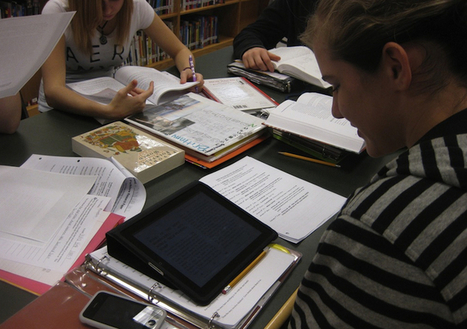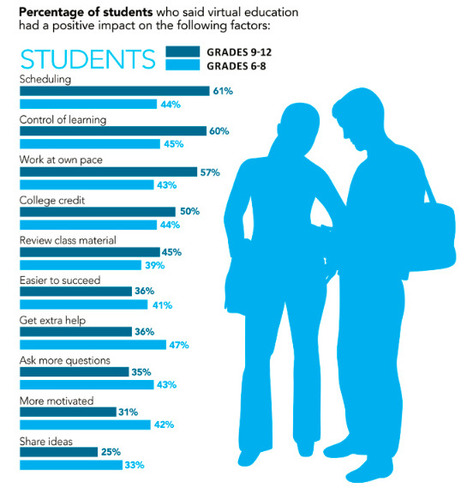"We’ve all heard it before, “Kids don’t know grammar anymore because all they do is text,” or “Today’s generation misses everything going on around them because they’re staring at their phones.” But a recent research study by UCLA warns the damage of too much screen time may be even worse than many of us imagined."
Research and publish the best content.
Get Started for FREE
Sign up with Facebook Sign up with X
I don't have a Facebook or a X account
Already have an account: Login
Tech tools that assist all students to be independent learners & teachers to become better teachers
Curated by
Beth Dichter
 Your new post is loading... Your new post is loading...
 Your new post is loading... Your new post is loading...

Susy Parsons's curator insight,
April 13, 2014 7:20 AM
Is going paperless in schools really an option with todays digital technology advances? |
|
















How often have you seen students sitting at a table together, but communicating via their cell phones. The eyes are on the screens, not their friends and classmates.
This post shares that technology is impactint students ability to read emotions. The next question to ask might be c"Can this change?"
The answer appears to be yes. For more information click through to the post.